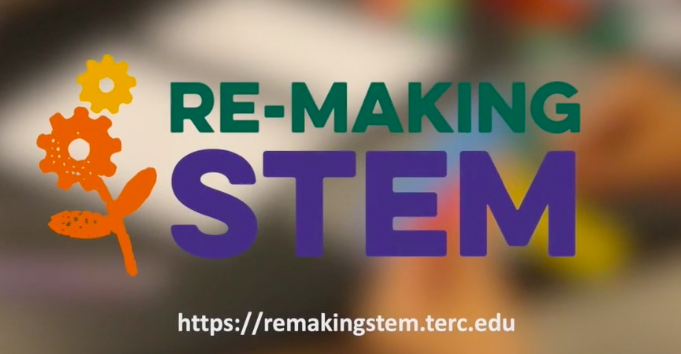Re-Making STEM: Disciplinary Computational Making Practices

Meet Brian Gravel — an extremely cool guy and one of the main researchers on our Tech and Play team. Brian’s focus is on studying the student experience of hands-on, playful learning in STEM. Brian and his team have been working on a particular project called “Collaborative Research: Integrating Computational Making Practices in STEM Teaching“. In 2018, the work was featured in the STEM For All Video Showcase titled “Re-Making STEM“. We believe Brian and his research team are really on to something with the way they take computational ideas and turn them into hands-on making projects full of paper, string, cardboard, and other common materials. Here’s the summary from the STEM For All Video Showcase website:
Re-Making STEM creates and implements a professional development program with 6th-12th grade teachers to explore how they integrate computational practices into their classrooms. The project is funded by NSF’s STEM+Computing program, and is a partnerships between Tufts, TERC, Olin College of Engineering, and two partner school districts around Boston.
The project focuses on what we call Disciplinary Computational Making Practices (DCMPs) that blend together aspects of computational making, disciplinary practices, and physical computing and digital fabrication activities present in many modern making spaces. The DCMPs are used to explore questions within STEM disciplines.
We are researching three dimensions of teacher learning:
- how computation plays a role in their learning through disciplinary practice
- attention to students’ and their own multiple ways of knowing, and
- how collective interdisciplinary inquiry influences their professional learning as they incorporate computational making into their teaching.
The project includes 3 Phases:
- Computational Play – where teachers explore computational practices and disciplinary questions,
- Computational Co-Making – where teachers and students are learners together as they solve socially-relevant problems through computational making, and
- Modifying Lessons with Computational Practices – where teachers are supported to modify classrooms lessons to include computational practices.
Our questions focus on how teachers renegotiate their relationships to the tools and practices of their home disciplines, to their students, and to their colleagues. We are also exploring the impact of this work on student learning in STEM.


